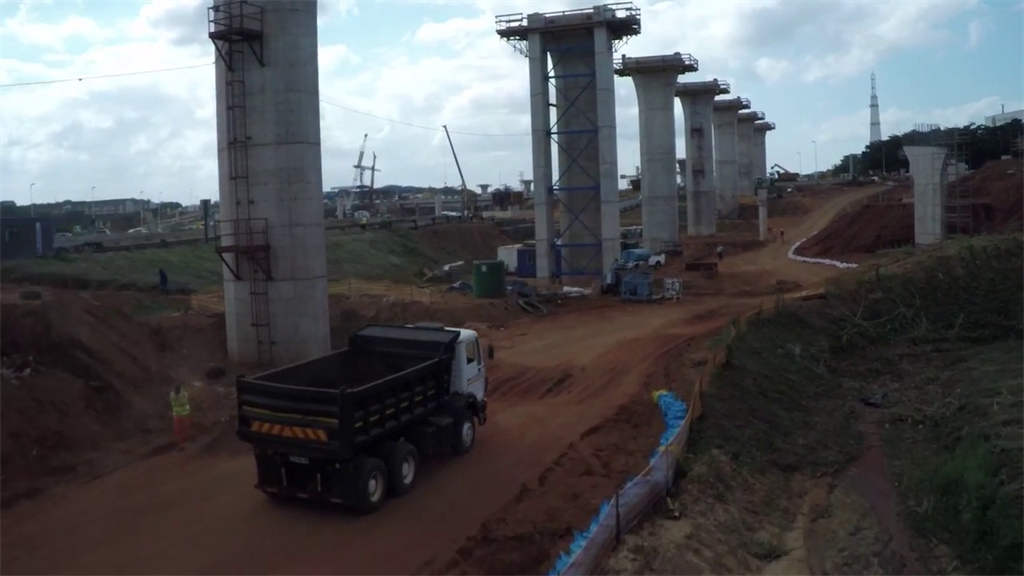News
SA capital spending plunged 37% as state scaled back expenditure

Mt Edgecombe highway interchange’s flyover bridge during construction. (Picture: Sanral)
Planned spending on capital projects in South Africa plunged 37% last year as the state scaled back expenditure, and the downswing is likely to continue in 2023, economists at the Nedbank Group said.
The value of new projects announced fell to R248.5 billion from R392.7 billion in 2021, Johannes Khosa, Crystal Huntley and Nomusa Soza said in a research note on Tuesday.
The decline in 2022 followed the unveiling of major projects in the two prior years that formed part of the government’s economic plan to help the economy from the coronavirus pandemic, they said. For instance, in 2021 the South African National Roads Agency SOC Ltd. announced plans to spend R30 billion upgrading two highways near the port city of Durban, compared with the R325 million rand investment it made last year on road-widening projects, according to Nedbank data.
The private sector announced plans to spend more last year, increasing its investment 59% to R193.6 billion, the data show. Most of the biggest projects were announced in the first half of the year, the economists said.
Some of the private-sector’s biggest investment plans were a R75 billion green hydrogen plant at the Coega Special Economic Zone, various renewable projects signed with government and a wind farm by Seriti Resources Holdings.
“Excluding those mega projects, total project announcements amounted to around R60 billion, suggesting hesitancy among businesses to commit to large capital expenditure given weak business confidence,” the economists said.
They expect growth in spending to continue to slow this year, forecasting that gross fixed capital formation will grow by 1.3%, down from an estimated 4.5% last year.
“Downward pressure will mainly be exerted by the impact of electricity shortages, which coupled with slower global and local demand, easing commodity prices, slow progress with structural reforms and persistent policy uncertainties will continue to hurt investor sentiment,” the economists said.
More than 200 days of power outages last year and blackouts every day so far in 2023 have dented confidence, as has the poor performance of the state transport utility and a plethora of other problems. Pledges to enact reforms to spur the economy have come to little, according to Neal Froneman, CEO at Sibanye Stillwater, the country’s biggest employer in the mining industry.
